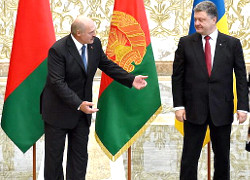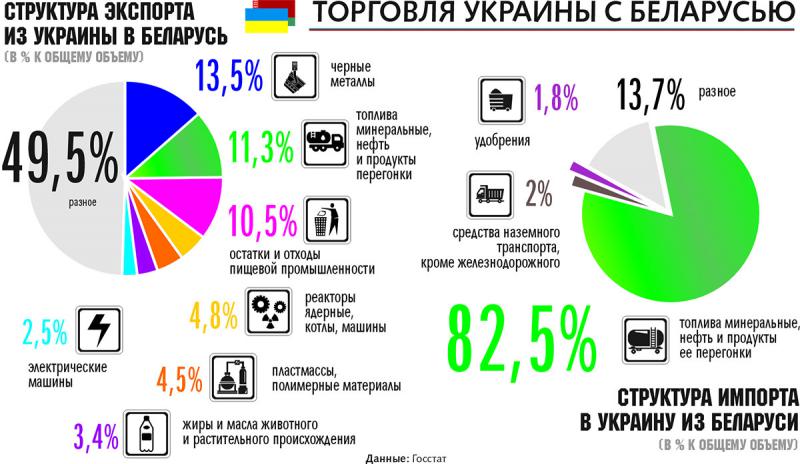Ukrainian media: Lukashenka seeks Poroshenko to be his advocate in Europe
18- 29.01.2015, 8:51
- 30,741

Minsk hopes the President of Ukraine to be his advocate in Brussels.
Weekly newspaper "Delovaya Stolitsa" reports. Here is a full text of the article "Why Lukashenko needs our hryvnya":
–Declared a possibility to deliver goods to Ukraine for a hryvnia, Belarus will lose nothing, but Poroshenko may advocate Belarus in Europe. Late last year, Aliaksandr Lukashenka said that his country was ready to trade with Russia only for hard currency - dollars and euros. Almost simultaneously with Daddy's statement another resonant announcement was sounded. Valiantsin Vialichko, Ambassador Extraordinary and Plenipotentiary of the Republic of Belarus to Ukraine, mentioned in one of his interviews that "a number of Belarusian enterprises with long-term contracts for the purchase components and other goods in Ukraine, despite certain risks, now partially will settle accounts in hryvnya".
Neighbors loyalty is allegedly linked to an acute shortage of hard currency in our country, an important trading partner for Belarus. Trade turnover between two countries in January-November 2014 amounted to $5.2 billion. "Complex situation on the Ukrainian forex market and difficult financial situation of some Ukrainian counterparties so that Belarusian enterprises have been thrown into a dilemma: either to settle accounts in hryvnya or leave the market. It turned to be more important for for suppliers of Belarusian machinery (trucks, tractors, agricultural machinery) and woodworking to stay on the Ukrainian market and even to extend its presence if possible", Vadzim Iasub, the analyst of "Alpari Belarus", says.
Oil and oil products make up more than 80% of Belarusian export to Ukraine for that our country should pay only in dollars. Therefore, domestic enterprises may settle accounts with partners only in local currency equivalent to $0.5 billion per year.
However, simple calculations show that the share of payments in Ukrainian currency may not be so significant. During 11 months of 2014 imports of goods from Belarus to Ukraine amounted to $3.7 billion (7.4% of total imports), while our exports to Belarus is only $1.5 billion (3 % of total exports of goods). "It is clear that Belarus does not have any interest in accumulating Ukrainian currency. For all hryvnya received they will buy goods in Ukraine. This means the amount of hryvnia payments should not exceed the total amount of Ukrainian exports in Belarus, in other words, not more than an equivalent of $1.5 billion a year, or not more than 40% of imports from Belarus", Aliaksandr Parashchyi, the head of the Analytical Department of Concorde Capital thinks. This figure will be even lower, if you recall the structure of imports from Belarus to Ukraine: oil and oil products make up more than 80% of Belarusian export for that Ukraine should pay only in dollars. Therefore, domestic enterprises may settle accounts with partners only in local currency equivalent to $0.5 billion a year, which is hardly a huge savings.

Minsk statements are likely politically motivated Lukashenka has long been preparing foothold for improved relations with the European Union. Resumption of work of Belarusian customs officers on the frontier with the RF, the commencement of negotiations on a visa free regime with member countries of the EU, and Lukashenka's notorious statement to refuse trading for Russian rubles prove it. As for loyalty of Belarus to Ukrainian trading partners, it has its own interest. As long as Europe listen to Poroshenko, Minsk can make many concessions expecting that the President of Ukraine will say a word for it in Brussels. However, Lukashenka is also not going to burn bridges in relations with Russia. Contrary to a resonance statement about settling accounts with Russia for free currency, the practical steps in this direction have not been taken.
"Most of Belarus-Russia accounts are settled in Russian rubles", Vadzim Iasub states. Only the energy sources (oil, gas, electricity) which Belarus acquires from Russia under long-term contracts for US currency are the exception.










